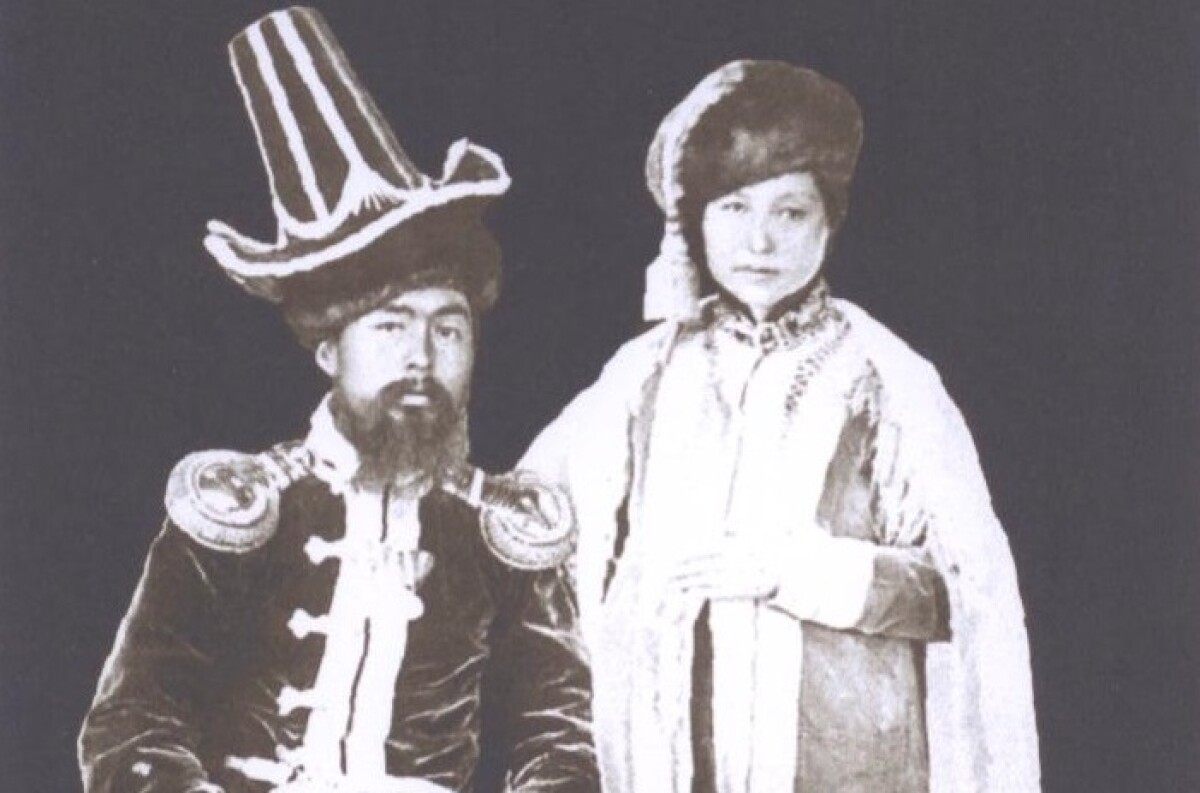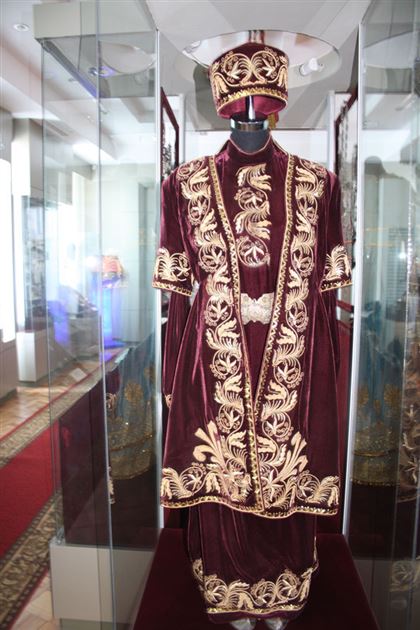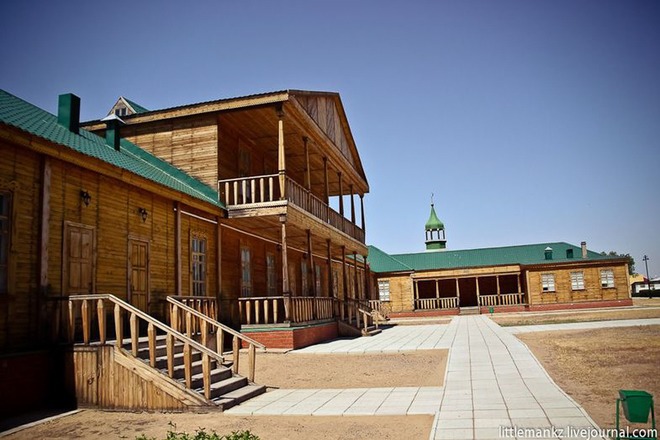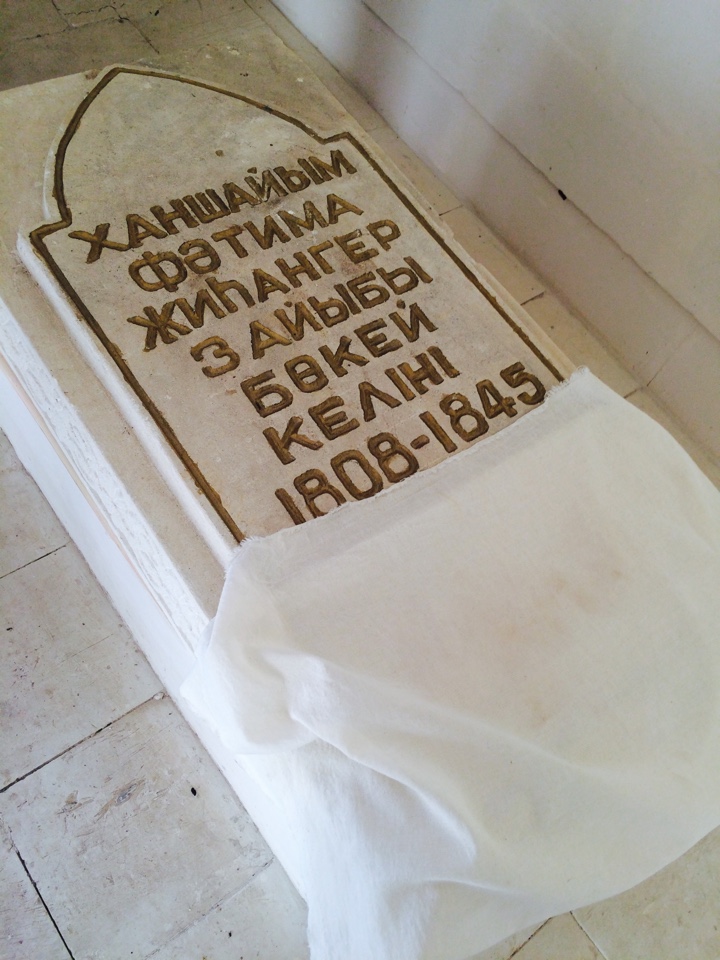
Only occasionally flashed examples in which representatives of the fair sex took the reins of government in their own hands and directly influenced the significant events. But sometimes history happens on the sidelines, and we learn about the sources of the results obtained from fragmentary facts and rare documents.
An outstanding woman of her time was Khansha Fatima, the wife of Khan Zhangir. She became famous for her beauty not only in the Kazakh steppe, but also in the Russian Empire. When Zhangir Khan and his wife spent time at a ball in the Kremlin, the young girl was noticed by Emperor Nicholas I. He asked her for a dance, and was pleasantly surprised by Fatima's erudition and sharp mind. Then the emperor asked:
"How can you live in the steppe?" There's nothing there!
To which the wise Khansha responded with famous lines:
“And the smoke of the Fatherland is sweet and pleasant to us, my sovereign!”
Fatima was the daughter of the famous Orenburg Mufti Mukhammedzhan Gusseynov. Her father did not skimp on the education of his children - Fatima except Russian and Tatar, spoke fluent English, French and German, knew court etiquette, knew how to play the piano, and knew the interpretation of the Koran.
It is not surprising that the young Khan was fascinated not only by her beauty, but also by her rich inner world. Zhangir Khan soon married her, he was twenty-one years old, and she was fifteen years old.
But they say that Zhangir Khan knew Fatima, even when she was a little girl - he was acquainted with the mufti. According to other sources, this was only a legend.
Zhangir Khan had four wives in his life; Fatima was the third and most beloved.

Fatima, as an oriental woman, was modest and wore dresses covering her shoulders and décolletage, but she also loved something new, she had a good taste. Her dress in Tatar style was given to the Museum of Kazan University, and a copy is kept in the Ural Museum. Fatima also wore European outfits: small hats, elegant dresses, gloves, and the khan in secular society often wore a military uniform. He had the rank of major general of the Russian army; besides, he had the court rank of aide-de-camp.
Khansha in all was the support of her husband, she was not afraid to interfere in difficult political situations. When Issatay Taymanov surrounded the Khan's rate during the uprising, Zhangir considered that the only way out was to escape, but Fatima stopped him, warning: “If you leave the rate, you will lose the khan's dignity forever”. Thanks to her, Zhangir Khan inclined Issatay to reconciliation, and rich gifts did their job, playing into the hands of the khan.
Zhangir Khan and Fatima enjoyed the special favor of the imperial couple. Empress Alexandra Fyodorovna, through the Minister of the Imperial Court, Prince Volkonsky and the Orenburg military governor Essen, presented a rich gift to her dear subject. In response, the grateful Khansha wrote a letter: "I was fortunate to receive from my husband a diadem, esclavage and earrings of the most beautiful Brazilian topaz, which your imperial majesty was pleased to honor me."
Baron Buhler visited the khan's rate, he wrote about Fatima: "Khan introduced us to his wife. She is very good, though she whitens her face and puts on rouge. She does not need these artificial embellishments. Charming Fatima Khansha, her affectionate reception will always be pleasant to me."

But the happiness of the young was short-lived. Mysterious death of a married couple has generated a lot of rumors. In preparation for the next visit to St. Petersburg Khan Zhangir unexpectedly died, and three months later Fatima died. Until now, the question remains - was there a connection between their death and the planned audience with the emperor…

Translated by Raushan MAKHMETZHANOVA
